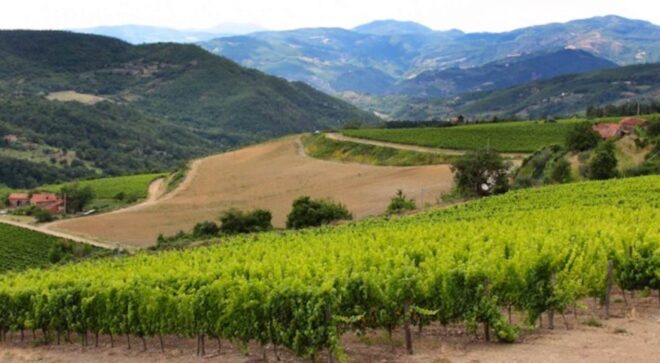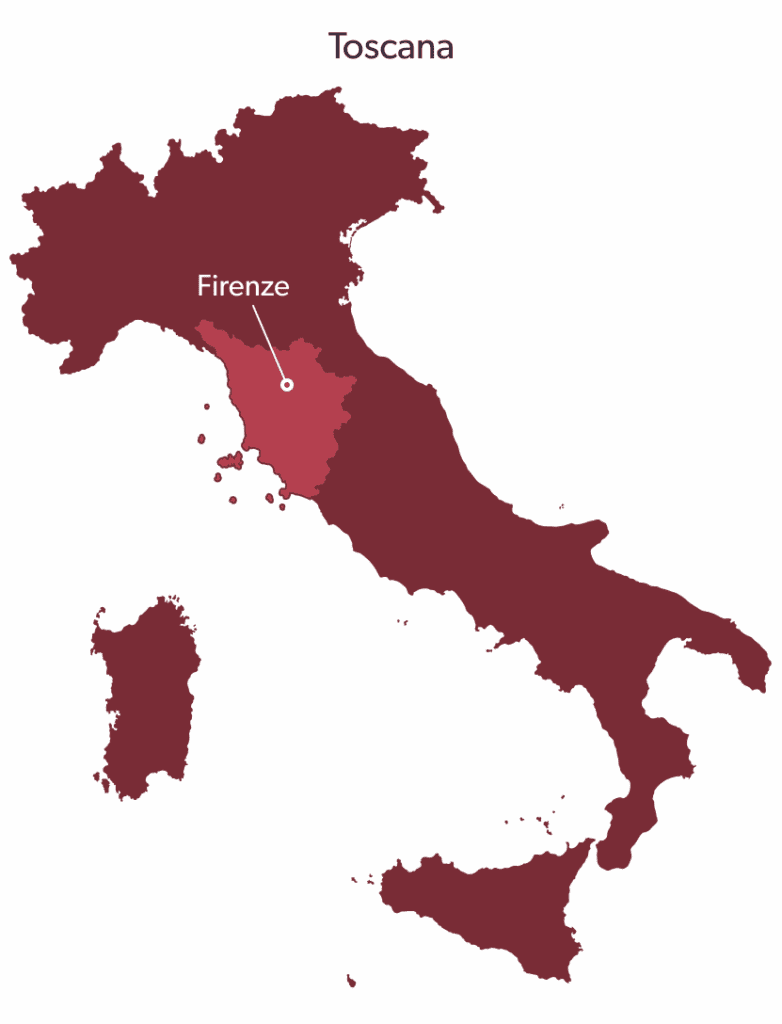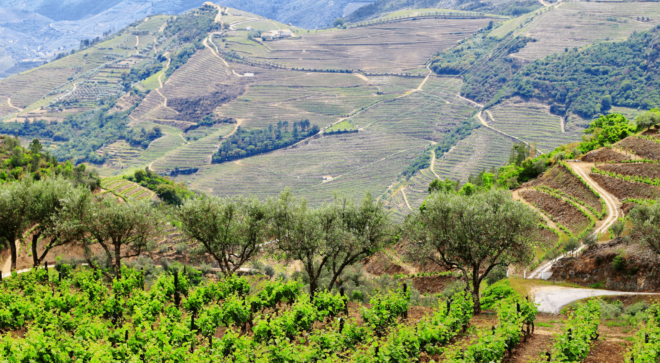Pomino DOC
Pomino (meaning “little apple”) DOC is in the province of Florence, Tuscany and includes white, red, Vin Santo Bianco and Vin Santo Rosso (which are dessert wines).
Presentation
Territory
Grape Variety
Aromas and pairings
Presentation
Vittorio degli Albizi came from the French branch of this noble Florentine family, who emigrated to Provence in 1523 following the struggles with the Medici for power in Florence. His father Alessandro took possession of the Valdisieve properties in the 1840s, including Pomino, which later became part of the Frescobaldi heritage following the marriage of Vittorio’s sister Leonia, with a member of that family.
Equipped with a pragmatic and rational French-style mentality, Vittorio found himself breathing the fermenting climate that invested Tuscan agriculture in the pre and post-unification period, becoming part of that debate that had at its objective the modernization of viticulture.
Specialized viticulture was not entirely unknown for the Tuscan tradition, descending from the classical and medieval ages. By importing wine technology and the spirit of enterprise of the French into Italy, Vittorio invested a large part of his ingenious commitment as an agronomist and winemaker to Pomino. He, therefore, decided to replace or integrate with other types of grapes the vines, then used in Pomino (Sangioveto, Canaiolo and Trebbiano), all late-ripening, at the same time abandoning the mixed cultivation in favour of the specialized sub-mountain viticulture, around 500 and 650-700 meters a.s.l., which led to producing “fine and more exquisite wines”, capable of a refined bouquet.
It is, therefore, on these historical bases that this wine, improved with new vines selected clonally on-site, obtained the DOC in 1983.

Territory
The geographical area of the Pomino DOC falls in the north-eastern part of Tuscany, in the province of Florence and includes a piedmont area located on the medium slope of the Sieve Valley, in an area of high hills and low and medium mountains, about 40 km north-east of Florence.
Therefore, the area where the Pomino DOC vineyards are grown represents an environmental and productive reality unique in Tuscany, where the specific ecological and climatic microcosm makes it possible for the perfect balance between vineyards and fir woods, chestnut trees and olive groves.
Grape Variety
Since 1855 French vines have been introduced to Pomino from Burgundy to obtain the “Pomino chablis”.
The grape varieties suitable for the production of the wine in question are those traditionally grown in the geographical area concerned:
- Chardonnay, Pinot Bianco, Pinot Grigio, Sauvignon and Trebbiano for white wines;
- Sangiovese, Pinot Nero and Merlot for the red wines.
Aromas and pairings
All the typologies foreseen for the red wines have balanced chemical-physical characteristics, with marked hints of mountain fruits, which confirm the influence of the environment in which they are found. At the same time, the flavour and smell show prevalent aromas typical of the vines.
White wines also have particular intensity and amplitude in aromas, very persistent and varied precisely due to the significant contribution that the climate of the foothills (alternating hot-cold) favours; the structure and texture of these wines pay homage to the type of noble grape varieties and above all to their adaptation in an environment that enhances their specific characteristics.
Pomino Bianco, a bright yellow wine with aromas of green apples and peaches, pairs well with appetizers, vegetables and fish-based dishes.
Pomino Rosso can be enjoyed with roast meats and fine cheeses and the dry Vin Santo can be served as aperitivo while the sweet variation pairs well with “cantucci“.
Learn more about :

Photo gallery
Learn more

Discover italy
Are you curious by nature? Are you a foodie? Discover the rich culture and gastronomy that is particular to each region.


